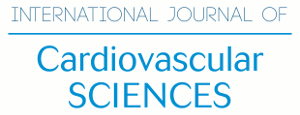Keywords
Thyroxine; Myocardial Contraction; Arrhythmias, Cardiac; Heart Failure; Rats; Calcium Channels
Much information is lacking on hyperthyroidism and cardiac function, especially in isolated muscles. Certainly, the time the heart muscle is exposed to elevated thyroid hormones (TH) influences the magnitude of their effects.11 Yamakawa H,Kato TS, Noh JY, Yuasa S, Kawamura A, Fukuda K,et al. Thyroid hormone plays an important role in cardiac function:From Bench to Bedside. Front Physiol. 2021;12:606931. doi: 10.3389/fphys.2021.606931
https://doi.org/10.3389/fphys.2021.60693...
The primary changes seem to be related to increases in the heart mass/body mass ratio and in relaxation kinetics.
These cardiac changes may also be related not only to the time of exposure to excess thyroid hormones, but to the level or intensity of hyperthyroidism, as well as the underlying cardiac condition, which may reflect exercise conditioning and overload. In this sense, the cellular mechanisms of muscle adaptation, energy and oxygen consumption, certainly make differences. As well as muscle strength and sarcoplasmic/endoplasmic reticulum calcium (SRCa) activity, they may also have different individual adaptive characteristics.
In any case, prolonged exposure to excess TH can compromise cardiac contractility and function, which are known causes not only of arrhythmia, but also of heart failure.22 Khan R, Sikanderkhel S, Gui J, Adeniyl A, O’Dell K, Erickson M, et al. Thyroid and cardiovascular disease: a focused review on the impact of hyperthyroidism in heart Failure. Cardiol Res. 2020;11:68-75. doi: 10.14740/cr1034
https://doi.org/10.14740/cr1034...
There is a need for a mechanistic determination of how TH act on myocardial contractility. In this Journal, the authors study, in rat models, the intracellular mechanisms involved in the excess of thyroid hormones (hyperthyroidism) in the contractility and Na+/Ca2+ Exchanger Activity in the heart muscle.33 Rambo AM, Peixoto JVC, Albuquerque RAL, Silva IK, Fogaça RTH. Effects of Hyperthyroidism on Contractility and Na+/Ca2+ Exchanger Activity in the Isolated Papillary Muscle of Rats. Int J Cardiovasc Sci. 2022;35(4),459-464. However, not all physiological mechanisms can be extrapolated from animals to humans because of their differences and specificities. In clinical practice, we still control heart rate with beta-blockers, and in case of contraindication, with benzothiazepine and calcium channel blocker.
The actions of TH on cardiovascular system involve an increase in heart rate and cardiac contractility, an improvement in systolic and diastolic function of the heart, and a decrease in systemic vascular resistance. Some molecular pathways that mediate the role of TH in the cardiovascular system have been better described in recent years. Genomic and non-genomic molecular pathways underlie the effects of TH on cardiomyocytes. That is, the effects of THs at the cardiac intracellular level are divided into genomic and non-genomic pathways. In the genomic pathway, TH regulate the expression of target genes binding to nuclear receptors on cardiomyocytes, and exert a modulatory and adaptive effect, regulating gene expression. In contrast, the non-genomic pathway includes effects on cardiomyocyte ion channels and effects of THs on peripheral circulation, which regulate hemodynamics and cardiac ejection fraction, and seems be more immediate and permissive to the actions of catecholamines.22 Khan R, Sikanderkhel S, Gui J, Adeniyl A, O’Dell K, Erickson M, et al. Thyroid and cardiovascular disease: a focused review on the impact of hyperthyroidism in heart Failure. Cardiol Res. 2020;11:68-75. doi: 10.14740/cr1034
https://doi.org/10.14740/cr1034...
A deep understanding of the physiological mechanisms, regulations, and actions of TH on cardiomyocytes are fundamental for the development of new therapeutic targets for control and treatment. Furthermore, it also allows to elucidate the mechanisms of arrhythmia induction, as well as cardiomyocyte remodeling and dysfunction induced by these hormones.
-
Editorial referring to the article: Effects of Hyperthyroidism on Contractility and Na+/Ca2+ Exchanger Activity in the Isolated Papillary Muscle of Rats
References
-
1Yamakawa H,Kato TS, Noh JY, Yuasa S, Kawamura A, Fukuda K,et al. Thyroid hormone plays an important role in cardiac function:From Bench to Bedside. Front Physiol. 2021;12:606931. doi: 10.3389/fphys.2021.606931
» https://doi.org/10.3389/fphys.2021.606931 -
2Khan R, Sikanderkhel S, Gui J, Adeniyl A, O’Dell K, Erickson M, et al. Thyroid and cardiovascular disease: a focused review on the impact of hyperthyroidism in heart Failure. Cardiol Res. 2020;11:68-75. doi: 10.14740/cr1034
» https://doi.org/10.14740/cr1034 -
3Rambo AM, Peixoto JVC, Albuquerque RAL, Silva IK, Fogaça RTH. Effects of Hyperthyroidism on Contractility and Na+/Ca2+ Exchanger Activity in the Isolated Papillary Muscle of Rats. Int J Cardiovasc Sci. 2022;35(4),459-464.
Publication Dates
-
Publication in this collection
13 July 2022 -
Date of issue
2022

